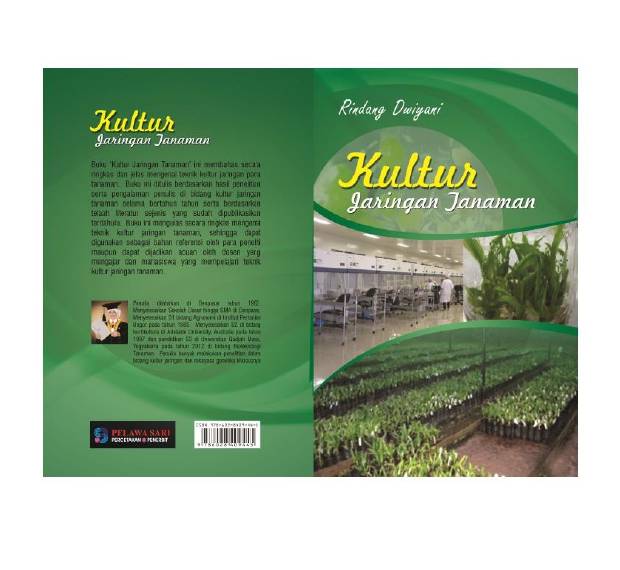
Plant Tissue Culture
Rindang Dwiyani
ISBN : 978-602-8409-44-5 Published : 2015
Abstrak
Plant tissue culture is a technique for growing
cells, tissues or slices of plant organs in the laboratory on an artificial
media that contains aseptic (sterile) nutrients to become a whole plant.
Sterile conditions are an absolute requirement for successful implementation of
tissue culture, so these conditions must be maintained throughout the culture
process. Even if only one fungal spore or only one bacterial cell enters the
culture media, the culture work will fail and no new plants will be produced.
Plant tissue culture is based on cellular totipotency theory which states that
each plant cell has the capacity to regenerate to form plants as a whole.
New
plants obtained in this way are identical to their parents, and are called
plantlets. The number of new plants produced is not only one, but can be tens
to hundreds (from one planting material or explants) so that tissue culture
techniques are used as a method of propagation of plants. The method of plant
propagation carried out by tissue culture techniques is classified as
vegetative propagation, meaning that it does not involve the fertilization of
eggs and male sex cells as well as the formation of seeds in plants, which is
why the plantlets produced are identical to its parent.
Propagation
of plants by tissue culture techniques is also called micropropagation or micro
propagation. The word 'micro' refers to the initial planting material used,
which is a small explant (micro = small), even reaching less than 1 mm in
meristem culture. This book discusses in detail the theories about tissue
culture, its history and the results of the research done by the author in
relation to plant tissue culture.
